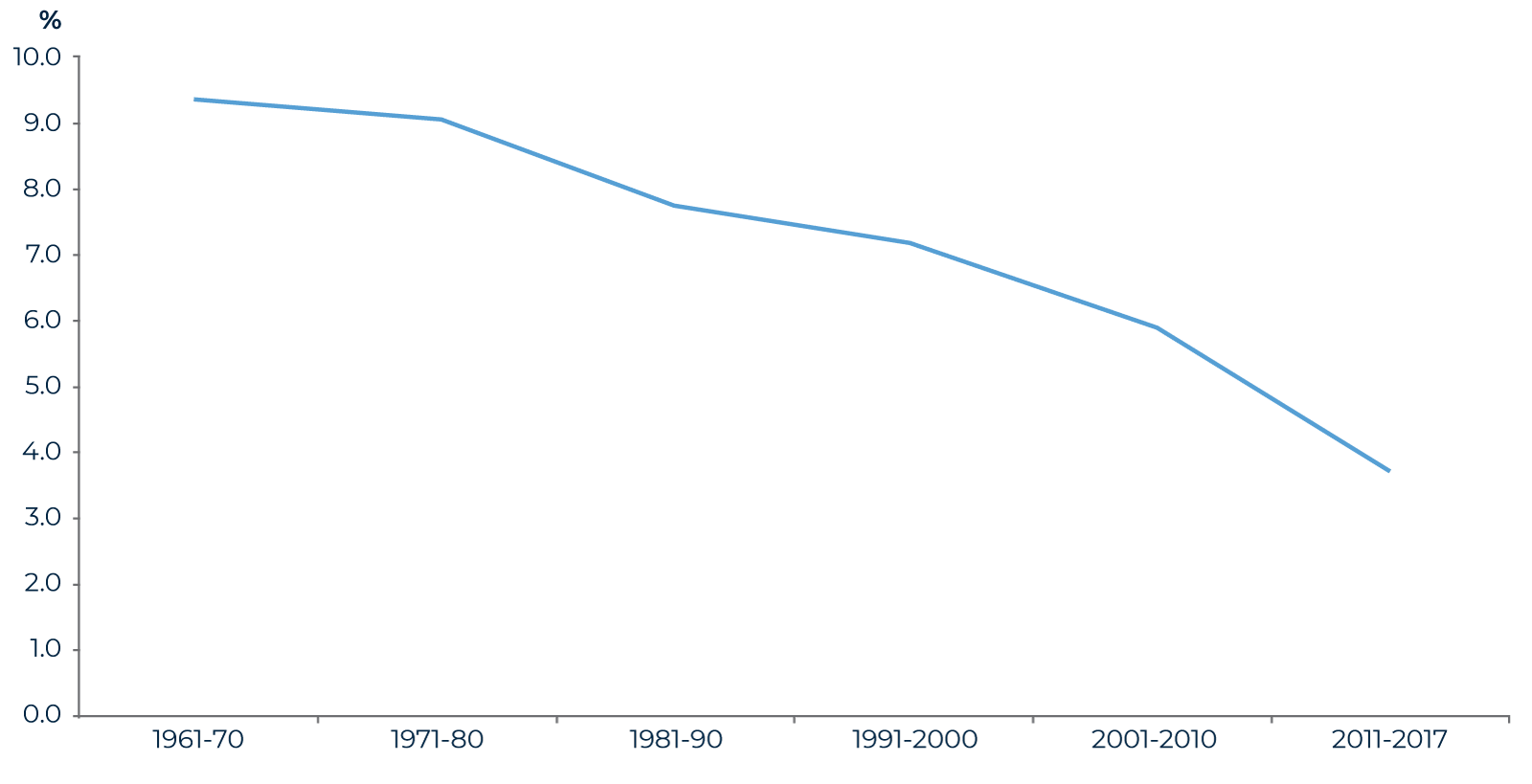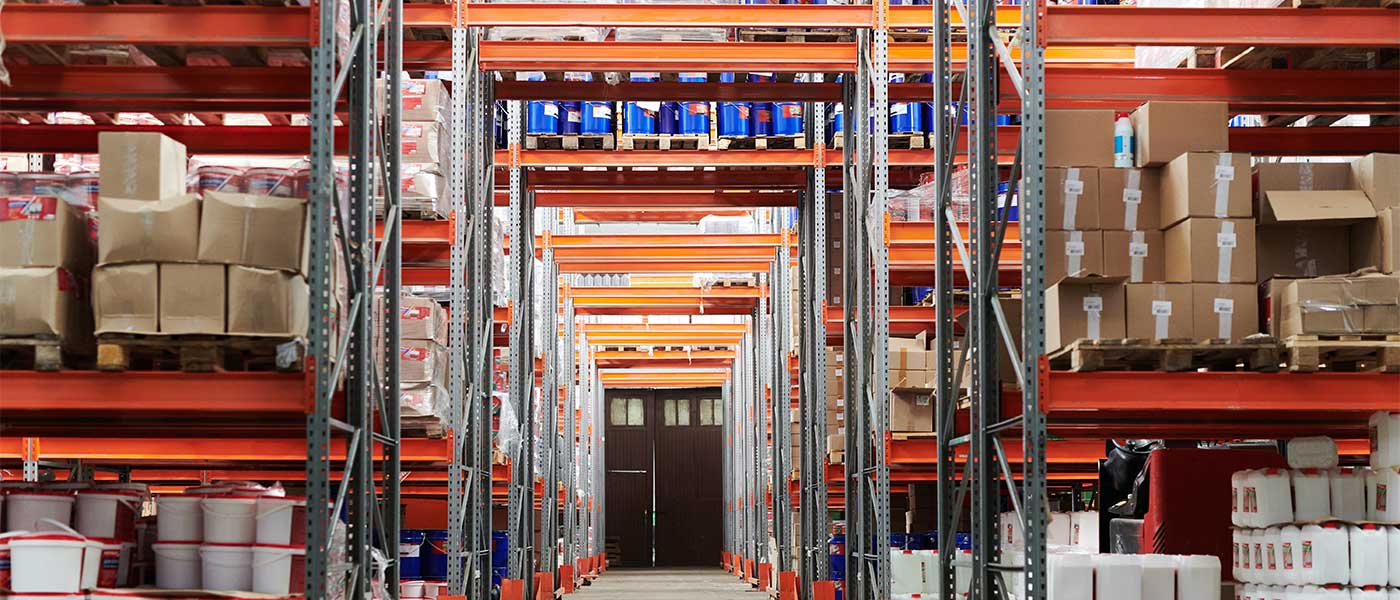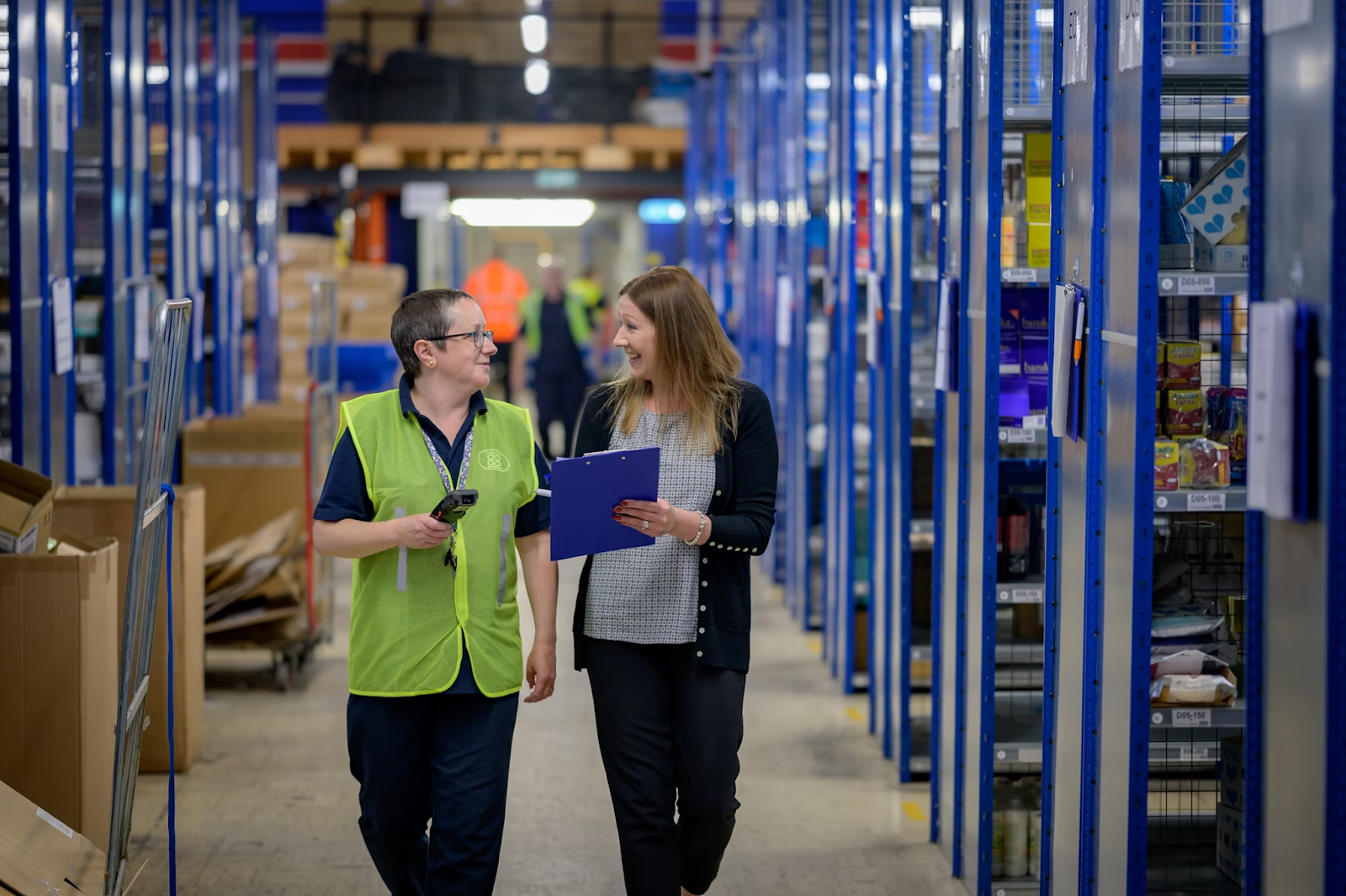It’s no secret that Singapore is great for setting up your business. In 2021, there were approximately 1500 business leaders in Singapore from various industries, such as environmental services, logistics, retail, hotels, financial services, and many more. The country’s GDP increased by 0.2% in the first quarter of 2021.
Singapore has been consistently rising as a top place to expand your business compared to other countries. With that said, you’ll face some major challenges while expanding your business further in the APAC regions, specifically Singapore.
Singapore’s Economic Environment
According to EDB, Singapore is the world’s next economic powerhouse, right after India and China. Let’s take a step back and evaluate the country’s economic conditions. If we look at the stats for 2021, the GDP of Singapore grew by 7.2%, rebounding from 5.4% in 2020. Zooming in further into the country’s economy, we have the manufacturing sector at number one, which contributed 14% in the same year, followed by construction and service-producing industries.
This indicates the country’s rising economy, with businesses all over the country contributing to it. It seems like a perfect opportunity for newcomers to expand and start their own companies in Singapore. Although the idea is not far-fetched, it’s easier said than done.
There are a lot of challenges and obstacles that come on your way when you start your business. In Singapore, the challenges might be more discrete. In this article, we dive deeper into the significant challenges to expanding your business in Singapore.
Advantages Of Expanding Into Singapore
Expanding into Singapore offers numerous advantages for businesses seeking growth and opportunities in the Southeast Asian region. Here are some key advantages of expanding into Singapore:
1. Strategic Location
Singapore’s strategic location serves as a gateway to the rest of Asia, providing businesses with easy access to a vast market of over 650 million people. Singapore is a free port as more than 99% of all imports enter Singapore duty-free. The country’s well-connected transportation infrastructure and extensive trade agreements make it an ideal base for expanding operations throughout Southeast Asia. Locad provides fulfillment and logistics services in SIngapore, and can help you from first-mile to last-mile delivery!
2. Strong Business Environment
Singapore boasts a favorable business environment characterized by political stability, transparent regulations, and robust legal frameworks. The country consistently ranks high in global ease-of-doing-business indexes, attracting foreign investments and fostering a supportive ecosystem for business growth.
3. Regional Financial Hub
Singapore is a renowned financial hub, hosting numerous international banks, venture capital firms, and investment funds. The country’s well-regulated financial sector, access to capital, and extensive financial services make it an attractive location for businesses seeking funding, partnerships, or investment opportunities.
4. Skilled Workforce
Singapore has a highly skilled and educated workforce with a strong emphasis on innovation and technological advancements. The country’s educational institutions and training programs produce a talent pool equipped with the expertise needed for various industries, facilitating business growth and innovation.
5. Infrastructure and Connectivity
Singapore offers world-class infrastructure, including state-of-the-art ports, airports, and logistics facilities. Its advanced telecommunications networks, efficient transportation systems, and digital connectivity provide businesses with seamless access to global markets.
6. Government Support and Incentives
The Singaporean government actively promotes business growth and innovation through various support schemes, grants, and incentives. These include tax incentives, research and development grants, and industry-specific assistance programs, encouraging companies to invest and expand their operations in Singapore. The flat corporate tax rate is only 17 percent, and several incentives from the Inland Revenue Authority of Singapore can reduce the corporate tax rate for certain companies.
No Posts Found
Challenges of Expanding into the Singapore Business Market
The primary hurdles you’ll face when expanding your business are-
1. Incorporating and Registering your business

The first thing that goes against foreign entrepreneurs is they are only limited to private limited firms, where business is taken as a separate entity from the shareholders and directors. The shareholders of a private limited company are not accountable for any kind of debt and losses.
Secondly, if you choose to be a subsidiary-based entity, then it takes a lot of your time and money. It includes registering with the Account and Corporate Regulatory Authority, a Singaporean bank account, tax number, unique company concealment, and registration process. All the processes combined could be very cumbersome for some people. In Singapore, however, 100 percent of an incorporated company may remain in foreign hands.
2. Labor shortages
International entrepreneurs majorly contribute to Singapore’s business. People from all over the world work in Singapore thanks to government support. However, the global labor quotas are creating a labor shortage in Singapore. The government has recently prioritized residents of Singapore after the local residents’ displeased response to high living costs. This, in turn, has created 54% of vacant space among laborers. Singapore also relies heavily on foreign workers who make up 34 percent of the workforce.
3. Working longer
In western countries, flexible working hours have always been their charm. There are usually 35 hours a week of working hours all across the world. However, the case is not the same in Singapore, and this marks Singapore as the world’s second most challenging country to work in, after Tokyo. The average working hours are 45, including 9 to 5 and 5 days a week.
4. ‘Resident’ director
Every registered firm in Singapore must have at least one resident director or shareholder who will oversee the company and guide it. This also means that unless you have one more director in your company, the previous director cannot resign from the company.
5. Expensive country
Doing business in Singapore requires a lot of capital. It is one of the most expensive countries to set up your business. Everything is costly in Singapore, from rent to electricity bills, and it takes a sizable chunk to operate your business in Singapore. Individuals planning to move into the country should have a well-versed cost-saving plan to moderate their lifestyle. Residents in the country pay a progressive tax rate, with the rate set at 22 percent for the highest tax bracket, which includes incomes above about $320,000 per year.
6. Work Pass requirements
You must have a work pass to work legally in Singapore. It is issued by Singapore’s immigration department, which reserves the right to deny admission. The work must be under that specific designation stated in the work pass. They are not allowed to take up additional work that generates income in Singapore. Different work passes come for foreign workers. These are- employment pass, entrepass, personalized employment pass, work permit, and many others.
7. Opening a Corporate Bank Account
Singapore’s government is very particular about the Foreign Account Tax Compliance Act (FATCA) and CRS. Anybody who wants to open a bank account in Singapore must be aware of the stricter compliance checks and Know your customers (KYC). Depending on their CRS classifications, the government is then required to have the information regarding company shareholders and ultimate beneficial owners.
8. Culture
Talking about the cultural variability of the country, Singapore possesses a composition of various kinds of cultures from all over Asia, which includes Chinese, Malay, Indian, and Eurasian communities. Four official languages are spoken in the Country: English, Mandarin, Malay, and Tamil, with English being the widely spoken language for business and administration purposes.
So if an entrepreneur wants to set up their business, they can cater to multiple cultures and thoroughly research the demographics of Singapore.
9. Construction permits
There are numerous procedures required in order to get permission for construction. The process could be really hectic for entrepreneurs who want to expand their business offline. Ideally, the process should take less than a few days to complete, but it actually takes a lot longer than that and includes more or less 11 procedures.
It is mandatory for businesses to get written permission from the Urban Redevelopment Authority before getting structural plans approved. It also needs clearance from the Central Building Plans Unit of the Ministry of Environment and Water Resources, the Land Transport Authority, and the Workplace Safety and Health Commissioner.
Things To Note Before Expanding Into Singapore
1. Market Concentration
Singapore has a major alliance with the United States, and it is Singapore’s fourth largest import source, coming after China, Malaysia, and Taiwan. The other major suppliers in Singapore are South Korea, Japan, Germany, Thailand, France, and United Arab Emirates.
As already mentioned, Singapore has a booming GDP and significant potential to rule the business market by 2025. Its economy heavily depends on transshipment, although the electronic sector remains at the top. Singapore is becoming a popular choice for big business players to set up their headquarters, thereby increasing employment opportunities for residents and foreigners.
With this much workforce and business, there comes an increase in competition among various entrepreneurs. To expand your business in Singapore, you must be aware of the competition around you. You will compete with both small and big companies to make your own way. It is likely that you’ll need help or advice from somebody who has already been working in Singapore for quite a long time.
You should know how to make your product stand out; you must be creative and unique with your marketing and advertising ideas. Moreover, you’ll also need a little heads-up to recruit some of the best and most talented people to work with you.
2. Trading Across Borders
Singapore has one of the most liberal trading regulations in the world, but there are specific sectors or items that are not allowed to cross the borders of Singapore. The country restricts the import of non-medicinal chewing gums. There are also high taxes on distilled spirits and wine, tobacco products, and even motor vehicles.
There are also some restrictions on TV, audiovisuals, licensing of online websites, legal services, banking, financial services, and cloud computing. In April 2019, the government of Singapore imposed special import restrictions on Agri-food and veterinary products. There are no such restrictions in trading except for national security reasons and sectors such as air transportation, public utilities, shipping, and publishing.
3. Variable Weather
Singapore’s weather is usually variable. Typical weather in Singapore would be a mixture of abundant rainfall, high temperature, and humidity. It could be a challenge for people who are not used to high humidity and rain.
4. Transportation
Singapore’s transportation system is set to undergo significant changes due to train breakdowns in the last two years. Due to this, commuters have been facing substantial issues with transportation in Singapore. There are also some serious problems with overcrowding on buses and trains. The population of Singapore is continuously rising, but there are no impactful steps taken on the increasing commuting problems.
How Locad Can Help You Start Your E-commerce Business in Singapore
Locad has an abundance of fulfillment partners in Singapore that work super efficiently. With Locad, you can leverage flexible warehousing, same-day pick and pack, real-time insights into sales, and the latest technology perfect for a budding e-commerce business in Singapore. When you partner with Locad by outsourcing shipping and logistics, you can build a strong and secure warehouse network, courier services operating on national and international levels, and a unified e-commerce platform. Furthermore, you will also be able to satisfy your customers with the most optimized delivery services, further boosting your sales and popularity.
Conclusion
Starting an e-commerce business in Singapore may appear challenging. But with adequate information on the legal framework, challenges the industry poses, and a grasp of competition, you can easily launch and scale your business.
Once you factor in challenges, you can move on to creating a consolidated strategy to mitigate the impact of the market challenges and emerge as a successful business with a significant market share.
What are the challenges of the Singapore market?
Some challenges of the Singapore market include intense competition, high cost of living, limited domestic market size, and dependence on external trade due to the lack of natural resources.
What are the challenges faced by SMEs in Singapore?
Small and Medium-sized Enterprises (SMEs) in Singapore face challenges such as limited access to financing, difficulties in talent acquisition and retention, adapting to digital transformation, and navigating government regulations and bureaucracy.
What are the trade barriers in Singapore?
Trade barriers in Singapore can include import restrictions, high tariffs on certain goods, complex customs procedures, and regulatory requirements that may pose challenges for international trade.
What are the drawbacks of doing business in Singapore?
Drawbacks of doing business in Singapore can include high rental and labor costs, strong competition, a strict regulatory environment, and challenges related to talent shortage in specific industries.
Is Singapore good for doing business?
Singapore is generally considered a favorable destination for doing business due to its strong legal framework, political stability, excellent infrastructure, access to regional markets, and pro-business policies that attract foreign investment.
What is a major economic challenge in Singapore?
A major economic challenge in Singapore is its heavy reliance on external demand, making it vulnerable to global economic fluctuations and shifts in international trade patterns. This dependency can impact sectors such as manufacturing, exports, and services.











